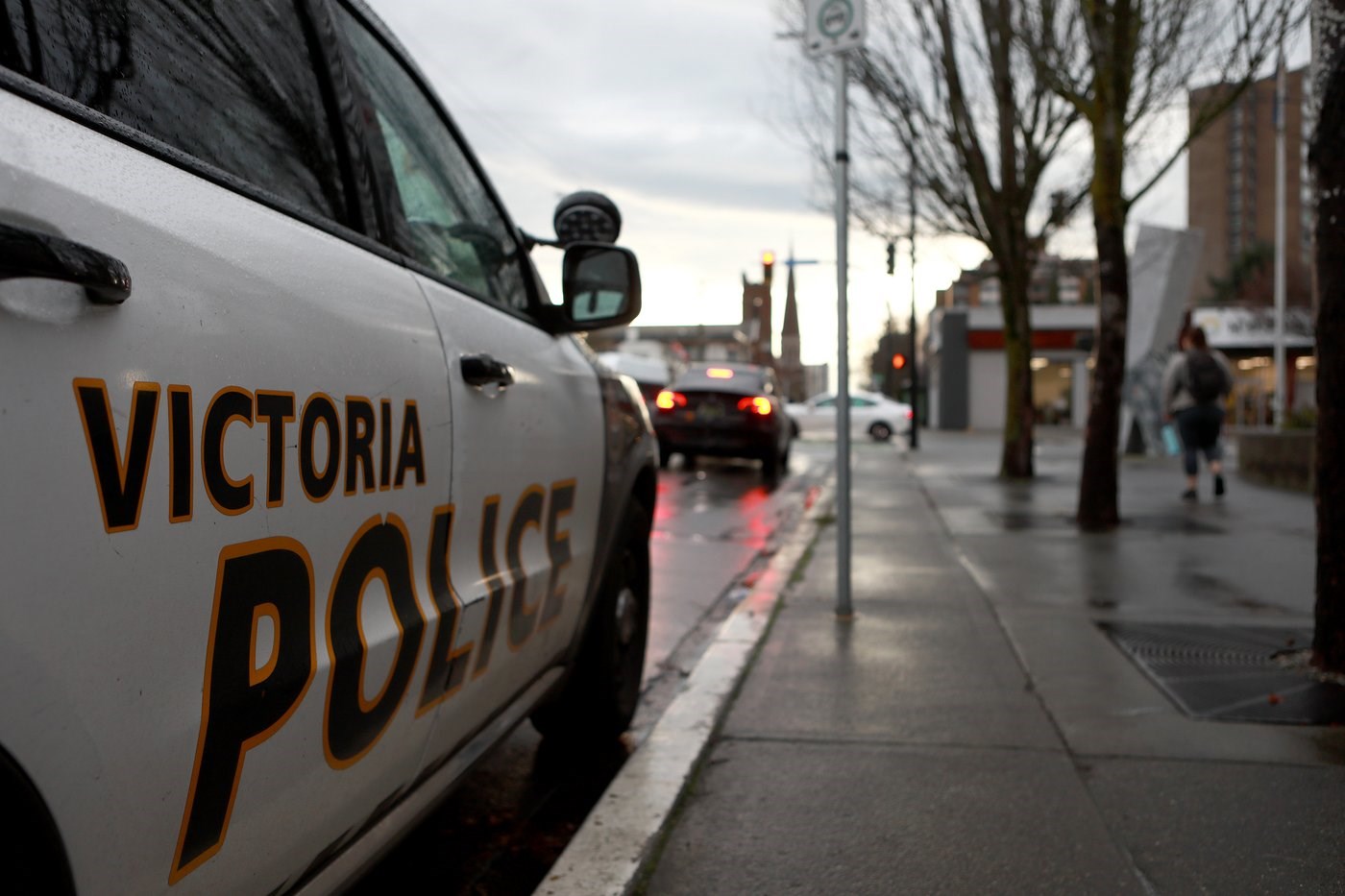
A view of the Victoria Police headquarters in Victoria, B.C., on Friday, December 20, 2024. THE CANADIAN PRESS/Chad Hipolito
Republished June 19, 2025 - 4:01 PM
Original Publication Date June 19, 2025 - 1:06 AM
VICTORIA — Victoria Mayor Marianne Alto says she's "thrilled" councillors have signalled support for a plan to address declining social order caused by homelessness, addiction and a fraying health care system in the city.
Councillors meeting as a committee voted eight-to-one to endorse the Community Safety and Wellbeing Plan and unanimously directed staff to analyze its operational and financial impacts.
Another vote to formally approve the plan, which does not have a price tag, is scheduled for July 3.
Alto says the city is facing crises that are "unacceptable" and the public has clearly told the city that issues of social disorder and "uncivility" are paramount.
The report was commissioned in 2023 and responds to what it calls increased disorder and a diminished sense of community well-being in the face of multiple challenges.
The report says people in B.C's capital are "discouraged, upset, and frustrated" with visible and invisible levels of poverty, homelessness and service gaps, despite efforts to revitalize the downtown, increase housing and improve safety.
Alto says the plan with its 95 recommendations -- many aimed at the provincial and federal governments -- is not just another report, but instead marks a "watershed moment" in the history of the city as it responds to social challenges.
She said many of the causes behind those challenges are the responsibility of other levels of government and organizations.
"We can't deny that, and we will continue to work with them to ensure that the results are collaborative, and then eventually, the right authorities take responsibility for the costs and execution of those solutions," she said. "But meanwhile, we cannot wait any longer. We have an obligation to Victorians to take action."
Alto said the city will fill some of the gaps for now, with the hope that other levels of government will see what works and do their part to help the city. She also expressed hope that other communities in Greater Victoria will take their cues from the report.
She said in an interview that residents could see additional bylaw officers on their streets sometime this year after council directed staff to implement "preliminary actions" within the available 2025 budget to support the plan.
Alto added that staff could hire additional bylaw officers even without the approval of council if money could be found without changing the 2025 budget.
Alto acknowledged financial constraints and difficult choices.
"It's impossible to predict the storm clouds that are coming, but what this indicates is that every order of government, every decision maker is facing some really extremely difficult choices," she said.
"In this case, I believe that this is a priority. That has been indicated strongly by the public generally, and that there is a high expectation that this will be a priority."
Specific recommendations within Victoria's control include measures to improve downtown safety, explore the establishment of designated shelters and tiny homes for people transitioning from homelessness, and support the delivery of mental health first aid training.
The report says that concerns about safety and the impacts of social disorder are "negatively impacting business vitality" in Victoria, whose success as a renowned tourism destination depends on the local economy with its array of unique businesses.
These concerns are echoed by Suzanne Bradbury, who guided the drafting of the plan as part of a panel consisting of community leaders.
Bradbury, who co-owns a property management company and is also a trained mental health and addictions counselor, said nobody is thriving right now.
Businesses are closing and those struggling with addictions are not getting better under the current system, she said.
"Momentum is certainly building, but it is moving in the wrong direction," she told councillors. "We need an intervention urgently to turn this around."
The Downtown Victoria Business Association said in its annual report released last week that 48 per cent of businesses surveyed said that if their leases were due soon, they would either not renew their leases, or were unsure if they would, because of the "current conditions" in the neighbourhood.
"We need bold, immediate action in 2025, or we risk a wave of closures, job losses, and a dramatic erosion of downtown's vitality," said Jeff Bray, the association's chief executive officer.
Jonny Morris, chief executive officer with the B.C. division of the Canadian Mental Health Association, also served with Bradbury on the panel.
He said in an interview that the "ambitious" plan serves as a "very robust North Star" for all levels of government.
"So the city is taking on its piece," he said. "We will need to see the province, and the federal government find ways to interact and interface with these recommendations."
Not all members of Victoria city council think that will happen.
Coun. Marg Gardiner said the plan includes a "good list of steps" to help individuals who are currently living on the streets and dealing with addiction. But she added that she is not confident that senior levels will fulfill their obligations.
This report by The Canadian Press was first published June 19, 2025.
News from © The Canadian Press, 2025